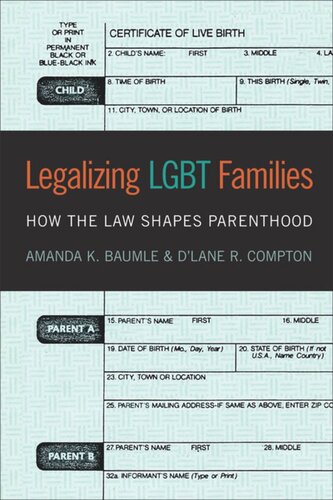

Most ebook files are in PDF format, so you can easily read them using various software such as Foxit Reader or directly on the Google Chrome browser.
Some ebook files are released by publishers in other formats such as .awz, .mobi, .epub, .fb2, etc. You may need to install specific software to read these formats on mobile/PC, such as Calibre.
Please read the tutorial at this link: https://ebookbell.com/faq
We offer FREE conversion to the popular formats you request; however, this may take some time. Therefore, right after payment, please email us, and we will try to provide the service as quickly as possible.
For some exceptional file formats or broken links (if any), please refrain from opening any disputes. Instead, email us first, and we will try to assist within a maximum of 6 hours.
EbookBell Team

4.8
74 reviewsThe decision to have a child is seldom a simple one, often fraught with complexities regarding emotional readiness, finances, marital status, and compatibility with life and career goals. Rarely, though, do individuals consider the role of the law in facilitating or inhibiting their ability to have a child or to parent. For LGBT individuals, however, parenting is saturated with legality – including the initial decision of whether to have a child, how to have a child, whether one’s relationship with their child will be recognized, and everyday acts of parenting like completing forms or picking up children from school.
Through in-depth interviews with 137 LGBT parents, Amanda K. Baumle and D’Lane R. Compton examine the role of the law in the lives of LGBT parents and how individuals use the law when making decisions about family formation or parenting. Baumle and Compton explore the ways in which LGBT parents participate in the process of constructing legality through accepting, modifying, or rejecting legal meanings about their families. Few groups encounter as much variation in access to everyday legal rights pertaining to the family as do LGBT parents. This complexity and variation in legal environments provides a rather unique opportunity to examine the manner in which legal context affects the ways in which individuals come to understand the meaning and utility of the law for their lives. The authors conclude that legality is constructed through a complex interplay of legal context, social networks, individual characteristics, and familial desires. Ultimately, the stories of LGBT parents in this book reflect a rich and varied relationship between the law, the state, and the private family goals of individuals.